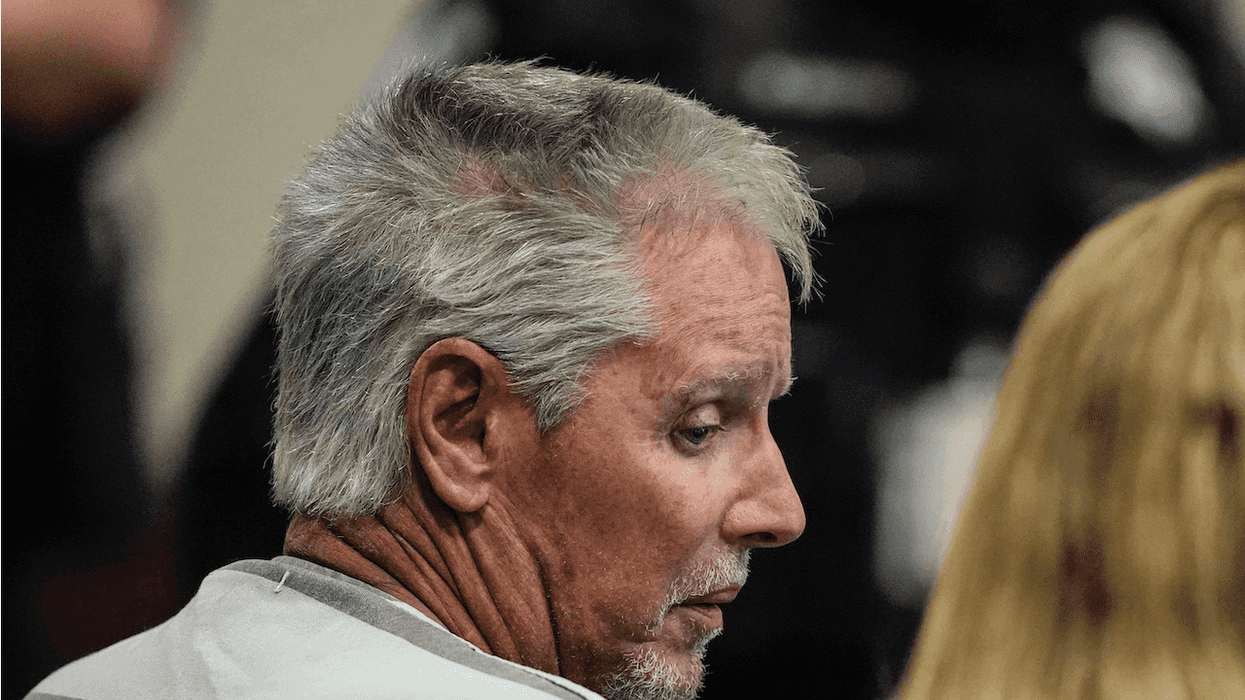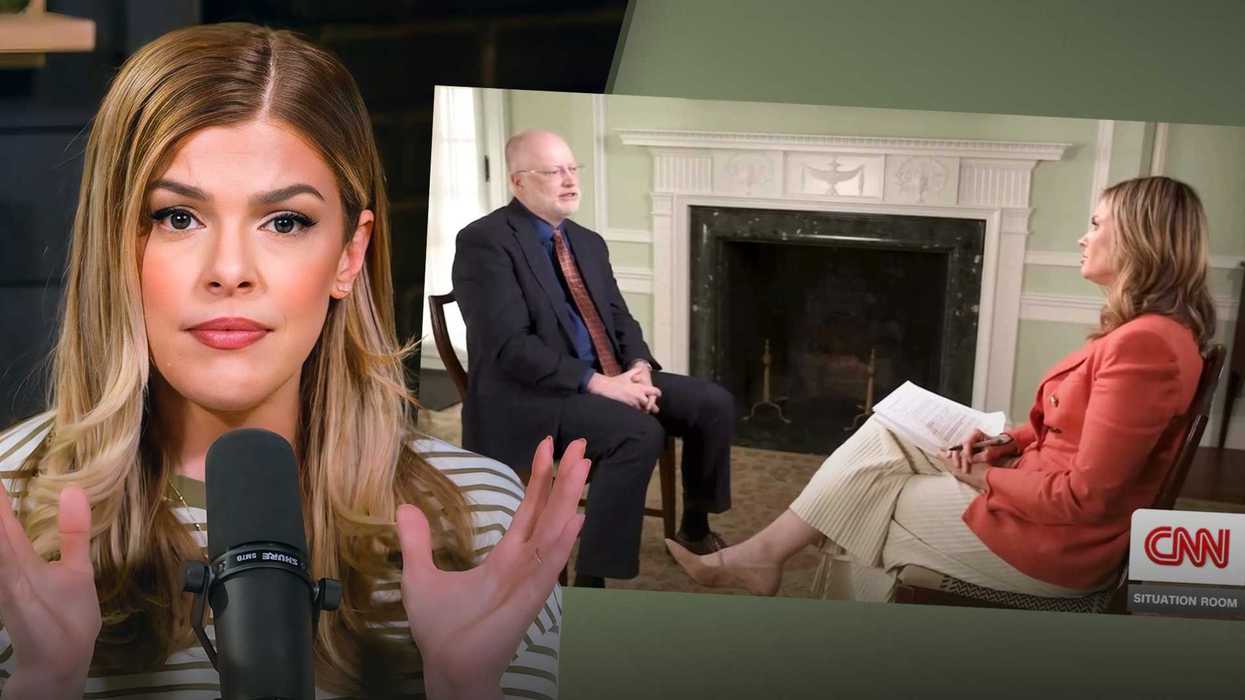
© 2026 Blaze Media LLC. All rights reserved.
9 books recommended by the Department of Labor that you'll actually want to read
November 29, 2013
We reported recently on the Department of Labor's “Books that Shaped Work in America” initiative, whereby influential labor officials contributed book recommendations relating to work, including many by Communists, Socialists and fellow travelers. It just so happened that there were a handful of worthwhile book picks too. Check out the list below.
1. Anthem by Ayn Rand [Suggested by: Amanda Kraft]
Glenn has suggested Ayn Rand's Anthem as representative of the mindset that drives Common Core. This eerie book depicts a society in which there is no concept of individualism, with one's lot in life completely determined by various governing "Councils." The book is a story of love and re-discovering liberty for two members of society that break out of the collectivist government grip, characters coldly but aptly named Equality 7-2521 and Liberty 5-3000.
2. The Book of Virtues by William J. Bennett [Suggested by: Ann McLaughlin Korologos]
Former Secretary of Education Bill Bennett put together a cornucopia of moral tales in this timeless book whose lessons are valuable for children and adults alike.
3. Capitalism and Freedom by Milton Friedman [Suggested by: William Brock]
An essential Milton Friedman classic, Capitalism and Freedom as its title suggests reflects Friedman's belief in the indelible link between free enterprise and a free society, and goes into great detail on his economic philosophy regarding monetary policy, education, trade and a variety of other areas.
4. Economics in One Lesson by Henry Hazlitt [Suggested by: Elaine Chao]
One of the great introductions to free-market economics, prolific journalist, economist and foe of all things Keynesian, Henry Hazlitt provides a simple but comprehensive book on the merits of capitalism versus statism, presented largely through excellent reductio ad absurdum arguments. Hazlitt's book frames the fundamental flaws of Keynesianism beginning with the "Parable of the Broken Window," following in French economist Frederic Bastiat's footsteps in explaining the "seen" perceived benefits of government actions and the "unseen" people hurt by such actions, which the wise economist anticipates. Get this book to educate your kids, grandkids and open-minded leftist friends.
5. The Federalist Papers by Alexander Hamilton, James Madison and John Jay [Suggested by: William Brock]
Those who do not study history are doomed to repeat it. Read the Federalist Papers to understand the crucial issues the Founders grappled with in drafting the Constitution, and the system they intended in their own words.
6. The Forgotten Man by Amity Shlaes [Suggested by: Elaine Chao]
Amity Shlaes' The Forgotten Man follows in the footsteps of Murray Rothbard, Jim Powell and others in examining the truth behind FDR's New Deal policies, and how they contrary to popular opinion actually extended and exacerbated the Great Depression of the 1930s.
7. McGuffey's Newly Revised Eclectic Primer by William Holmes McGuffey [Suggested by: John Y. Cole]
Something of an original "The Book of Virtues," The Original McGuffey's Eclectic Primer was used to educate children during the 1800s through simple stories that taught valuable lessons. It is referenced throughout Charles Murray's Coming Apart as having been an ingenious guide for inculcating virtue in American students, plus teaching them grammar.
8. The Wealth of Nations by Adam Smith [Suggested by: William Brock]
A landmark book on capitalism and markets published in 1776, the year America declared its independence from Great Britain, Smith provides contributions on free trade, specialization, competition, the concept of the "invisible hand" and a whole host of other theories in this robust and integral volume in the history of laissez-faire economics and economics more broadly.
9. When Character Was King by Peggy Noonan [Suggested by: Ann McLaughlin Korologos]
Former Reagan speechwriter and current Wall Street Journal contributor Peggy Noonan wrote this collection of stories as divulged by Reagan's family, friends and political acquaintances that reflect perhaps Ronald Reagan's greatest and most endearing trait: character.
Want to leave a tip?
We answer to you. Help keep our content free of advertisers and big tech censorship by leaving a tip today.
Want to join the conversation?
Already a subscriber?
Ben Weingarten is a writer, commentator, and editor at large at RealClearInvestigations. He is a senior contributor at the Federalist and writes columns for Newsweek and the Epoch Times.
Ben Weingarten
Ben Weingarten is a writer, commentator, and editor at large at RealClearInvestigations. He is a senior contributor at the Federalist and writes columns for Newsweek and the Epoch Times.
more stories
Sign up for the Blaze newsletter
By signing up, you agree to our Privacy Policy and Terms of Use, and agree to receive content that may sometimes include advertisements. You may opt out at any time.
Related Content
© 2026 Blaze Media LLC. All rights reserved.
Get the stories that matter most delivered directly to your inbox.
By signing up, you agree to our Privacy Policy and Terms of Use, and agree to receive content that may sometimes include advertisements. You may opt out at any time.







